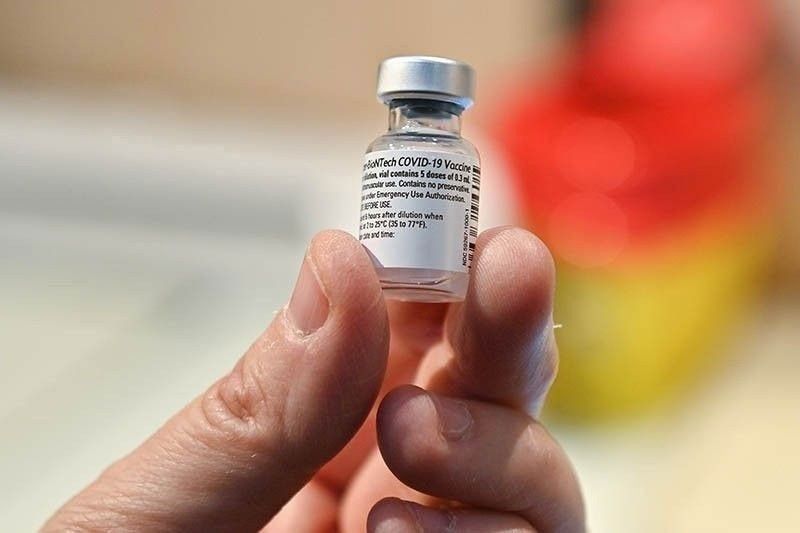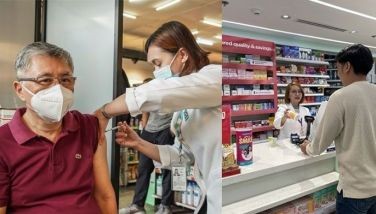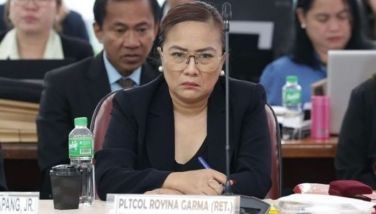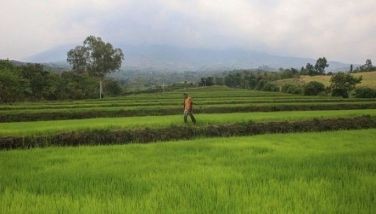Pfizer, Astra agree to have vax purchase details bared

MANILA, Philippines — Two COVID-19 vaccine manufacturers have given conditional approval for the release of their procurement deals with the Philippine government, according to Department of Health (DOH) officer-in-charge Maria Rosario Vergeire.
Vergeire yesterday said AstraZeneca and Pfizer agreed to release the information on vaccine procurement agreements with the DOH “under specific terms.”
“The DOH, as early as 2021, coordinated with vaccine manufacturers to secure their consent to disclose information and enable procurement audits free from legal liability,” Vergeire said.
As this developed, the DOH vowed to exert all efforts to ensure minimal vaccine wastage.
During a hearing of the Senate Blue Ribbon committee on the non-disclosure or refusal of the DOH to release details of the vaccine procurement contracts, Vergeire gave assurance that the agency is upholding accountability and transparency in vaccine procurement.
Solgen in vaccine deal
The solicitor general, as the statutory counsel of the government, will be part of the next procurement of SARS-CoV-2 vaccines.
Sen. Francis Tolentino, chair of the Blue Ribbon, said the solicitor general would help scrutinize the deal, especially those with a non-disclosure agreement.
The vaccine procurement should be scrutinized by government lawyers, he said.
“Because they will have to buy the bivalent vaccine. I told them to do the process with a lawyer, the government, the SolGen, so the contract can be reviewed,” Tolentino told journalists after the hearing.
When asked whether there was no irregularity in the vaccine procurement, Tolentino said he has yet to see the contract.
He said there would be two more executive sessions to “make everything transparent for people to know why the 44 million doses were wasted.”
Vergeire told the panel that the DOH inventories indicated that bulk of the wastage came from the procurement made by the private sector.
Vergeire clarified that the department doesn’t have any issue with being subjected to audits for the vaccine procurements.
“We are very much willing to be subjected to audits. In fact, the Department of Health specifically communicated officially to the Commission on Audit for this specific audience that can be done for our national vaccine deployment program,” she told the panel.
Tolentino said the committee wanted to determine whether enough policies are in place and whether Congress could still do more to ensure that the funds, sourced locally or abroad, can be used properly with accountability and with transparency to ensure that the people’s taxes were really used correctly.
“We are not here to determine whether the price was different from other acquisitions or purchases made by other jurisdiction. We are here to determine whether the accuracy of the 44 million wasted doses of various vaccines was accurate and made within the bounds and parameters of what can be wasted… and we are here to determine whether those policies can be corrected,” Tolentino said.
The bulk of vaccine wastage comes from procurements made by the private sector with 44.82 percent and local government units, 33.35 percent, the DOH said.
Of the total vaccines procured by the government, the DOH said only 2.02 percent or 2.7 million of 134 million have expired.
The DOH said the recorded vaccine wastage was way below the globally recognized maximum allowable wastage rate of 25 percent set by the GAVI alliance.
The figure may even be viewed as significantly lower compared to the wastage rates in other countries, which went as high as 30 percent.
The DOH said 10.95 percent of the country’s total accumulated expired vaccines were donated through the COVAX Facility.
It said it has secured the commitment of the COVAX Facility to replace expired doses with bivalent vaccines that better contribute to vaccination efforts.
While saying that wastage is inevitable, the DOH vowed to implement strategies to reduce the occurrence of wastage by employing effective supply chain management and boosting vaccination rates.
The DOH clarified that it has always been willing to provide the needed information on vaccine procurement.
The agency gave assurance that it would comply with the requirements of the Commission on Audit, although it said that disclosing information covered by confidentiality agreements without consent from the manufacturers has legal and health repercussions.
Tolentino urged the DOH to utilize the remaining government-procured COVID-19 vaccines for the second booster shot of the general population.
Tolentino asked the health officials to allow the administration of the second booster to avoid more wastage.
In reply, Vergeire said the DOH is maintaining its stand that more evidence is needed before it can recommend the implementation of the second booster to the rest of the population. – Cecille Suerte Felipe
- Latest
- Trending

































